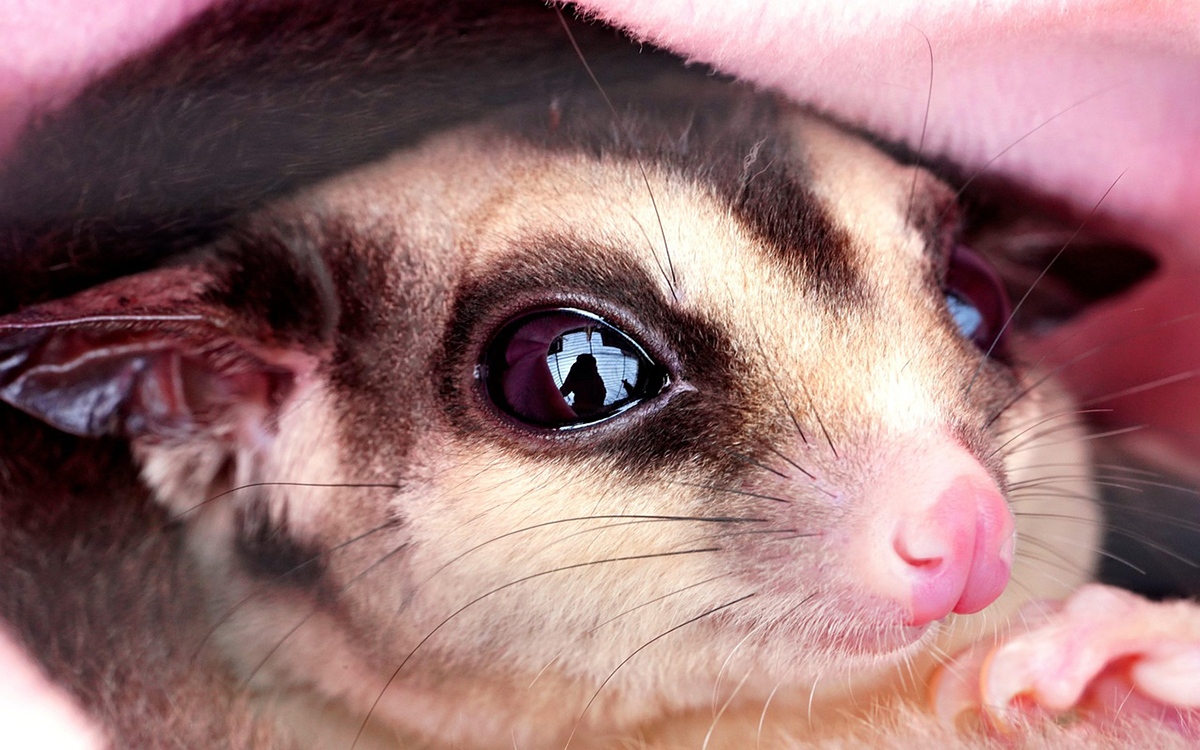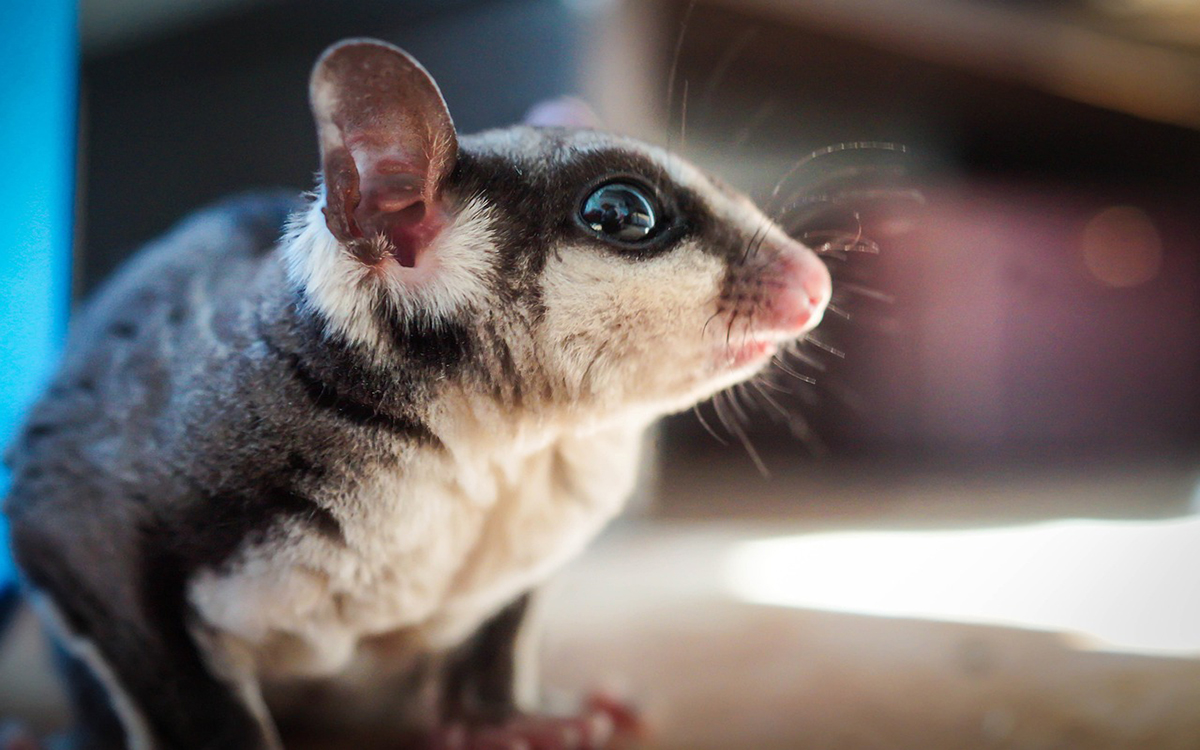If you share your home with a sugar glider, you already know they’re adorable, energetic, and… a little noisy. One of their most surprising vocalizations? Barking—and often, it happens in the middle of the night.
Before you start worrying (or Googling “why does my sugar glider bark at 3 a.m.?”), it helps to understand why sugar gliders bark, what this behavior means, and how you can respond.

First Things First: Sugar Gliders Are Nocturnal
Sugar gliders are naturally nocturnal marsupials. In the wild, they spend their nights foraging, socializing, and navigating treetops. So, their most active hours—and vocal hours—happen when most of us are trying to sleep.
Barking is just one of their many sounds (others include crabbing, chattering, and hissing), but it’s often the most noticeable because it’s loud and carries well.
Common Reasons Sugar Gliders Bark At Night
While each glider has its own personality, most nighttime barking falls into one of these categories:
- Social Communication
Sugar gliders live in tight-knit colonies in the wild. Barking can be their way of “checking in” with cage mates or even calling out to you if you’re their primary companion.
- If housed alone, a sugar glider might bark more often because they crave contact.
- In multi-glider homes, barking could be a quick “Where are you?” or “Come over here!” message.
- Alerting to Something Unusual
Your sugar glider might bark to warn others about something they see, hear, or smell. In the wild, this would be a survival behavior—alerting the colony to predators or changes in the environment. At home, that “danger” might be the sound of the fridge opening, a cat walking by, or even a change in lighting.
- Boredom or Loneliness
If a glider feels under stimulated, they might bark simply to get attention. This is especially common if:
- They don’t have enough toys or enrichment.
- They’re housed alone.
- They haven’t had much out-of-cage playtime recently.
- Mating or Hormonal Behavior
Unneutered males, in particular, may bark more often when hormonal surges hit. The barking can be a mating call, even if there are no females around.
- Learned Behavior
Some gliders figure out that barking gets them a response—whether that’s a treat, cuddles, or just you coming to check on them. Over time, they might bark simply because it works.

How to Tell If It’s Normal or a Problem
Occasional nighttime barking is completely normal for sugar gliders. It’s just part of their social and environmental communication.
However, you should take a closer look if:
- Barking is sudden and excessive compared to their usual behavior.
- They’re showing signs of distress—such as crabbing, pacing, or refusing to eat.
- The barking is paired with other unusual noises or physical symptoms (scratching excessively, hunching over, rapid breathing).
In these cases, it’s worth checking for potential stressors or scheduling a vet visit to rule out health issues.
Ways to Reduce or Manage Sugar Glider Barking
If your sugar glider’s midnight serenades are disrupting your sleep, here are a few tips to help:
- Offer More Enrichment
- Rotate toys to keep things interesting.
- Add foraging pouches, climbing ropes, and exercise wheels.
- Stick to a Playtime Routine
- Give them time out of the cage in the evening for bonding and exploration.
- A tired, stimulated glider is less likely to bark for attention.
- Consider a Companion
- Sugar gliders are highly social. Housing them in pairs or groups often reduces loneliness-driven barking.
- Check the Environment
- Minimize sudden lights, drafts, or noises during their active hours.
- If barking happens after something specific (like a loud appliance), that might be the trigger.
- Avoid Reinforcing Attention-Seeking Barking
- If your glider barks and you immediately give treats or playtime, they may bark more often to get the same result.
- Instead, wait until they’re quiet before rewarding with attention.
Quick Reference
Pro Tip:
Keep a “bark diary” for a week to track when and why your sugar glider vocalizes. Patterns—like barking right after lights out or during certain noises—can reveal triggers and make it easier to reduce unnecessary chatter.

Bottom Line
Barking at night is a normal part of sugar glider life. In most cases, it’s just their way of communicating—whether that’s a “hello,” a warning, or a request for your company.
As long as your glider is healthy, eating well, and otherwise acting normally, you can rest easy knowing their nighttime chatter is just part of their charm. With a little enrichment and a consistent routine, you may even be able to reduce the frequency—so you and your furry friend can both get a better night’s sleep.

